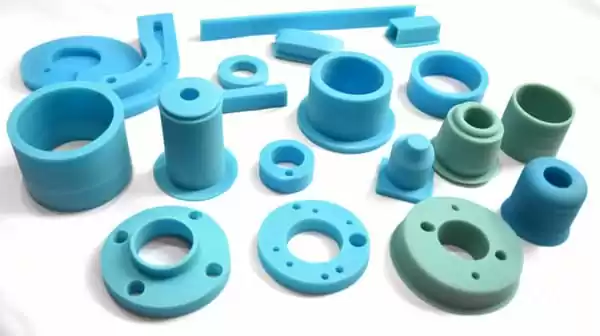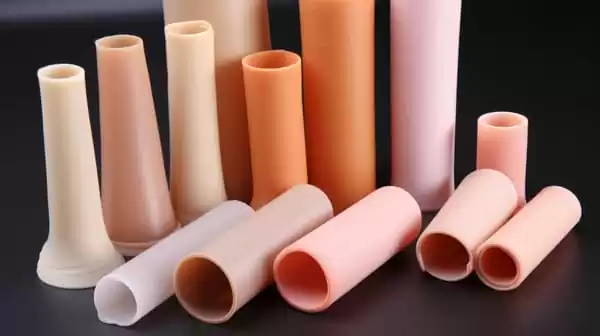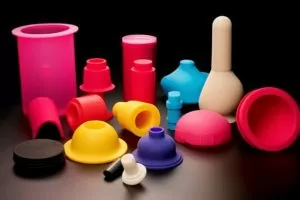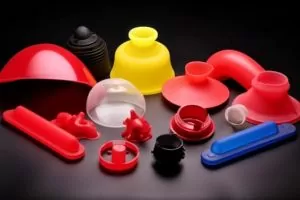Introduction
Silicone rubber has long been recognized for its remarkable properties and applications across numerous industries, opening new avenues of possibility and becoming the go-to material of many manufacturers and businesses worldwide. Here we explore all its capabilities while discussing all of its various advantages across industries and disciplines.
Silicone rubber’s significance lies not only in its adaptability and ability to meet industry’s ever-evolving requirements; thanks to its outstanding properties it has found use across numerous fields from extreme temperature environments and medical procedures, to delicate applications – cementing silicone’s place as an indispensable material in many fields of endeavor.
In this section, we’ll delve deeper into why silicone rubber has become such an indispensable material across industries and its advantages over other commonly-used innovation materials such as metal. From temperature resistance and biocompatibility in medical devices to its wide array of uses as an excellent seal material – discover this fascinating world of silicone rubber! Discover its significance for modern manufacturing and engineering!

II. Why Are Silicones Used in Various Industries?
Silicone elastomers have found their way into an extensive range of industries for several compelling reasons, each rooted in their exceptional properties and adaptability:
1. Extreme Temperature Tolerance
Silicone rubber is a standout performer when it comes to thermal insulation temperature extremes.Key to its immense popularity lies its capacity to withstand both high heat and extreme cold without succumbing to structural failure. This makes it an ideal choice for industries where temperature fluctuations are the norm. Whether in extreme hot environments or sub-zero conditions, silicone rubber remains robust and functional, setting it apart from natural and synthetic rubber counterparts.
2. Role as a Sealing Material
One of the primary uses for silicone rubber is as a sealing material. Its resistance to extreme temperatures, be it enduring the intense heat in an engine or braving the frigid cold in outdoor structures, positions it as a reliable sealing material. Silicone rubber excels where other materials may falter under repeated or extended compression, ensuring dependable performance even in the harshest conditions.
3. Significance in Medical Devices
Silicone rubber has long been recognized in the medical industry due to its biocompatibility. Classified as medical-grade material, silicone rubber ensures patient safety when used for critical medical devices like implants, catheters, pumps or any other form of equipment that involves patient safety such as implants or catheters. With non-toxic and water repellent characteristics making silicone rubber ideal as material choice.
4. Electrical Insulation Properties
The electronics industry prizes silicone rubber for its exceptional electrical insulation properties. It can withstand high temperatures without compromising its electrical characteristics, ensuring dependable performance in extreme hot and dry heat conditions. These properties extend to electrical conductivity and conductive properties, making silicone rubber an ideal choice for specialized applications where electrical insulation is essential.
5. Resistance to Corrosive Chemicals
In industries that deal with corrosive chemicals, silicone rubber stands as a quality rubber material that remains unaffected by these aggressive substances. Unlike many other rubber materials though, it resists the damaging effects of corrosive chemicals, upholding product purity and integrity. Whether it’s exposure to acids, solvents, or oils, silicone rubber’s resistance is a defining feature.
6. Resilience in UV Radiation and Environmental Factors
Silicone rubber’s resilience in the face of UV radiation and environmental factors is invaluable, especially in outdoor industries such as construction and aerospace. As a moisture sealant, it offers long-lasting protection against the harsh effects of UV light and heat resistance and weathering, extending the lifespan of structures and equipment.
7. Customization of Silicone Seals
Manufacturers appreciate the versatility of silicone rubbers, which allows for the creation of custom silicone seals tailored to specific industry needs. This adaptability enhances efficiency and effectiveness in a wide range of industrial applications, ensuring that silicone rubber can meet precise requirements.
8. Importance of Quality Control in Silicone Rubber Products
Silicone rubber is renowned for its rigorous quality control, ensuring that it consistently meets industry standards. This level of quality assurance is crucial in sectors like food processing, where product safety and quality are of paramount importance. Silicone rubber’s conformity with FDA regulations is testament to its reliability.

9. Metal Adhesion Properties
Silicone rubber’s exceptional metal adhesion properties contribute to its versatility. This quality facilitates its widespread use in various consumer products, industrial applications, and more, where a strong bond with metal surfaces is essential.
In summary, silicone rubber’s suitability in extreme temperature environments, its role as a sealing material, biocompatibility in medical devices, electrical insulation properties, resistance to corrosive chemicals, resilience to UV radiation, customization options, quality control, and metal adhesion properties collectively highlight its indispensability in a multitude of industries. This remarkable material continues to push the boundaries of what’s possible in modern manufacturing and engineering, catering to a diverse set of industrial needs.

III. What Are the Benefits of Silicone Rubber?
In this section, we will delve into the multitude of benefits that silicone rubber brings to various industries, highlighting why it is esteemed and cherished for its unparalleled qualities.
Temperature Tolerance: One of the most noteworthy attributes of silicone rubber is its exceptional temperature tolerance. It can withstand extreme heat and cold without losing structural integrity, and thermal stability, setting it apart as a reliable choice in applications with varying temperature conditions.
Sealing Properties: Silicone rubber’s role as a sealing material is vital. It excels in sealing applications that demand resilience under low temperatures and compression, ensuring dependable performance even in the most rigorous and demanding conditions.
Biocompatibility in Medical Devices: In the medical field, the biocompatibility of silicone rubber is a game-changer. It’s considered a medical-grade material, making it safe for use in medical implants, catheters, and a wide array of medical devices. Its non-toxic and water-repellent characteristics contribute to the safety and efficacy of these applications.
Electrical Insulation: In the electronics industry, silicone rubber’s exceptional electrical insulation properties ensure the reliability of electrical components even in high-temperature environments. It maintains its electrical properties, making it a top choice for applications where insulation is a critical requirement.
Resistance to Corrosive Chemicals: Silicone rubber’s ability to resist corrosive chemicals is a boon in industries dealing with aggressive substances. It withstands exposure to acids, solvents, oils, and other harsh chemicals, preserving product purity and integrity.
UV and Environmental Resistance: In outdoor industries, such as construction and aerospace, silicone rubber’s resilience in the face of UV radiation and environmental factors is invaluable. It acts as a moisture sealant, providing long-lasting protection against the harsh effects of UV light and weathering, contributing to the longevity of structures and equipment.
Customization Options: Manufacturers appreciate the versatility of silicone rubber, allowing for custom solutions tailored to specific requirements. This adaptability enhances efficiency and effectiveness in a wide range of industrial applications, ensuring silicone rubber can meet precise needs.
Quality Control: Silicone rubber has long been associated with rigorous quality controls that adhere to industry and FDA standards and regulations, such as food processing. This quality of production is particularly essential in sectors where product safety and quality are non-negotiable requirements.
Silicone Rubber Is Ideal for Metal Adhesion: Silicone rubber’s exceptional metal adhesion properties make it a highly flexible material, lending itself to use across an array of consumer goods, industrial applications and beyond where securing metal surfaces securely is paramount. This quality has led to widespread implementation across a wide range of consumer goods as well as industrial processes requiring strong bonds with metal surfaces such as automobile engines.
Silicone rubber is a material with multiple uses across industries due to its exceptional combination of characteristics. This includes being able to withstand extreme temperatures, provide reliable sealing material for medical devices, act as an electrical insulator and resist corrosive chemicals – not to mention customization options, rigorous quality control procedures and metal adhesion capabilities – among many others. Silicone rubber continues to drive innovation, elevate product performance and meet ever-evolving industry requirements; cementing its place as an indispensable material.

Conclusion
Silicone rubber has earned itself an indispensable place across various industries due to its adaptability, reliability and outstanding combination of attributes. Silicone rubber continues to meet the ever-evolving requirements of modern manufacturing and engineering – from extreme temperature environments and medical device production lines through medical device development and electronics assembly lines – staying relevant by meeting ever-evolving manufacturing and engineering needs and flourishing by meeting them! Silicone rubber remains an outstanding component that consistently delivers outstanding results across various fields – standing the test of time!



